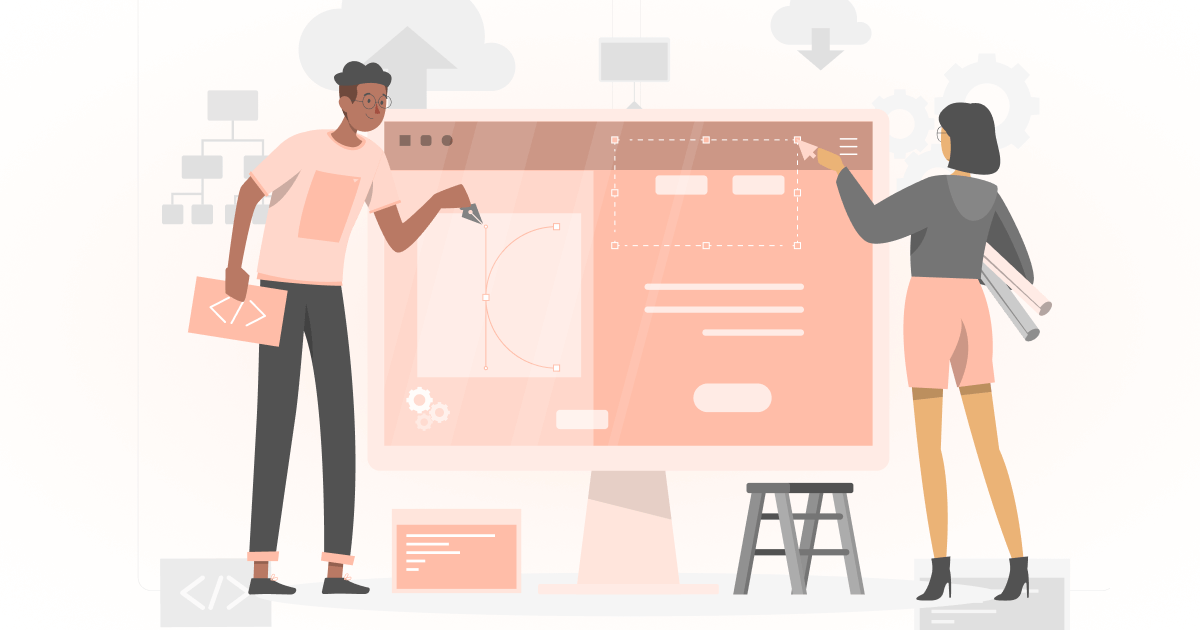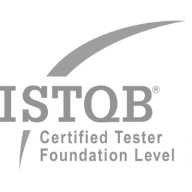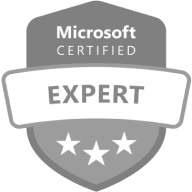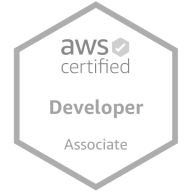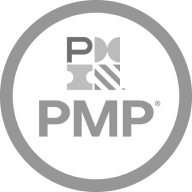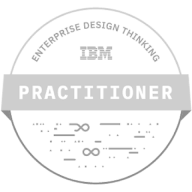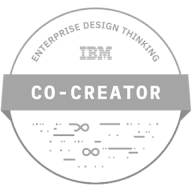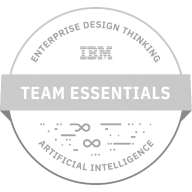
Want to know more? — Subscribe
Mental health EHR software is designed to meet the needs of mental health practitioners and their patients. Beyond digitizing records, they empower providers, foster patient engagement, and facilitate seamless coordination.
At Softermii, we have been developing healthcare solutions for over nine years. Our platforms with EHRintegration, like HIPAA Telmed and MedRealtime, showcase and prove our expertise in this area. In this article, we aim to share the benefits and challenges of mental health EHRs, shedding light on their important features and upcoming trends.
Join us in exploring this digital frontier and learn insights into mental health EHRs' promising trajectory.
Features and Components of Mental Health EHR
Electronic Health Records (EHRs) streamline the patient care process and ensure optimal outcomes. With specific mental health demands, EHRs need certain unique features and components. We present the key elements of comprehensive mental health EHR systems.
Intuitive User Interface
A user-friendly interface allows healthcare providers to navigate easily. It reduces their time on administrative tasks and maximizes their patient care time.
Customizable Templates
There's a diverse range of mental health conditions and therapeutic approaches. Custom templates allow providers to tailor the EHR to the specific needs of their practice and patients.
Integrated Progress Notes
Progress notes allow therapists to document the details of each session. For example, HIPAA Telmed allows them to track patients' disorder progress and changes in their symptoms or treatment plans. Healthcare professionals can also access and edit these notes at any time.
Medication Management
Include features to track prescriptions, monitor medication interactions and side effects. A robust behavioral health EHR software also provides capabilities to send prescriptions electronically.
Appointment Scheduling and Reminders
This feature assists in managing patient appointments, minimizing no-shows, and facilitating timely follow-ups. Connecting to online calendars and automatically sending reminders can improve clinic efficiency. For instance, with this module, MedRealTime optimizes doctors' workloads and eliminates patients' need to visit the hospital physically.
Secure Messaging
Encrypted messaging systems allow for confidential communication between the patient and the provider. It is vital for sharing resources, addressing concerns, and providing teletherapy service.
Data Security and Compliance
A paramount concern in EHR systems is the security of sensitive patientdata. The system should adhere to regulatory standards, such as HIPAA in the U.S., ensuring data encryption, regular backups, and stringent access controls.
Telehealth Integration
As teletherapy becomes prevalent, it's important for EHRs to integrate with telehealth platforms. The integration is powered by WebRTC services, ensuring that therapy sessions are as effective as in-person appointments.
Analytics and Reporting
Analytics and reporting feature tracks the effectiveness of treatments, patient outcomes, and practice metrics. Over time, it can provide insights to enhance the quality of care.
Resource Library
An integrated library of therapeutic resources can be invaluable for therapists and patients. Include worksheets, educational materials, and other self-help tools to discover.
Benefits of Mental Health EHR for Professionals
For mental health therapists, adoption of mental health EHR software is a transformative change that enables better patient-centered care. Here are the main benefits EHRs bring to mental health doctors:
Streamlined Workflow
EHRs offer a centralized platform to record, retrieve, and manage patientdata. It reduces paperwork and administrative burdens. Moreover, doctors can spend more time with patients than searching for files or records.
Enhanced Coordination
With EHRs, doctors can share patientdata with other healthcare providers. This approach to patient care ensures that patients receive coordinated and comprehensive services.
Streamlined Billing
EHRs with streamlined billing make it easier to send bills and get paid by insurance. Doctors can get reimbursements on time, with fewer financial discrepancies.
Integrated Tools
Many EHRs have tools for mental health assessments, scales, and symptom trackers. Doctors can have everything they need to understand patients better and plan their care in one place.
Increased Confidentiality
EHRs use encryption and password protection to safeguard the sensitive data of patients. These measures enhance the trust between the patient and the provider.
Compliance and Regulations
EHR systems comply with local and international regulations. Practices remain within legal bounds, so doctors don't have to worry about documentation standards.
Patient Demographics and History
At the base of any EHR, this feature includes basic information about the patient, like their name, age, and contact details. The comprehensive history includes data about previous mental health episodes, hospitalizations, and family history.
Benefits for Patients
Using EHR software for mental health is not only beneficial for healthcarestaff, but it also impacts the patient experience. Let's explore the advantages that patients gain from the psychological therapy app development:
Empowerment through Access
Patient portals in EHR systems let patients access their medical records anytime. This way, users become active participants in their care, making them feel more responsible for their treatment.
Streamlined Communication and Feedback
EHRs often have messaging systems where patients can talk to their therapists or psychiatrists directly. They can ask questions, share worries, or get advice there. Patients can also give feedback on their treatment, making their care more suited to them.
Enhanced Continuity of Care
If a patient needs to see another specialist or get a referral, EHRs provide their data to the next doctor, ensuring a seamless transition.
Safety in Medication Management
EHRs track all prescriptions and possible medical reactions by mixing the drugs. It enhances patients' safety in pharmacological interventions.
Transparency
Patients should be able to access their treatment plans, progress notes, and any changes made by their providers.
Emergency Preparedness
In case of emergencies, important health details can be easy to find. It ensures the patient gets accurate clinical care, even in a new medical setting.
Challenges and Implementation
Implementing EHR software for behavioral health could have its challenges, too. Here are the major considerations professionals and organizations should be aware of:
Adoption and Training Difficulties
Transitioning from traditional methods to digital platforms can take time for staff, who are used to paper-based systems. Coupled with natural resistance to change, it can lead to decreases in productivity.
Data Migration and Integration
Moving patientdata to the new system is labor-intensive and might not be accurate. Also, the seamless integration with other healthcare systems, like CRM, HIEs, or PACS, can be tricky due to interoperability concerns.
Financial Implications
The costs of EHR systems with maintenance and training can pose a financial challenge for smaller doctors' practices.
Technical and Usability Issues
EHRs are prone to bugs or technical glitches, which may cause disruptions. When you build a mental health application, prioritize user-friendliness to avoid inefficiencies and staff frustration due to shortcomings.
Security, Privacy, and Compliance
Ensuring the utmost protection of sensitive mental health records is of paramount importance. Any organization must adhere to stringent security guidelines and maintain compliance with regional regulations such as HIPAA.
Vendor and System Limitations
Some EHR vendors might not offer support or updates of their systems, leading to potential system obsolescence. Customizing the system to practice's unique needs can also be challenging.
Impact on Patient Interaction
Doctors need to focus more on the patient than on the system. Otherwise, the beneficial use of EHRs can become a barrier in the therapeutic relationship.
Future Trends in Mental Health EHR
EHRs in mental health are always evolving, adapting to new technological advancements and the changing needs of providers and patients. We've gathered the emerging trends that may define the future of mental health electronic health records software:
Integration with Advanced Technologies
AI usage for data analysis, predictive insights, and personalized treatment has become more prevalent. Voice Recognition and Natural Language Processing can make note-taking and administrative tasks more automated. Telehealth integration allows for real-time data sharing and collaborative care across platforms.
Patient Engagement and Interaction
The next wave of EHRs will focus more on the patient experience. Patient Portals are evolving into interactive platforms with enhanced engagement in therapeutic and mindfulness sessions. Patients could communicate with AI-driven chat systems. Augmented and Virtual Reality provide new immersive therapy methods in controlled virtual environments.
Wearable Tech and Real-time Monitoring
Synchronization with health-monitoring wearables provides a more holistic view of a patient's health. They track everything from physical vitals to emotional fluctuations, helping with timely care.
Data Security and Integrity
With growing data privacy concerns, EHRs may shift toward blockchain technologies. They ensure unparalleled data protection, security, and transparent access records. EHRs could also evolve into collaborative hubs, fostering communication among healthcare professionals.
Insightful Data Representations
Using large medical databases and computational prowess provides more personalized treatment recommendations. Enhanced Data Visualization Tools transform complex medicaldata into intuitive, easy-to-understand graphical formats.
Feedback-Driven Development
EHRs become more interactive and user-centric. Thus, their evolution increasingly hinges on feedback. This feedback guides system improvements, ensuring EHRs remain adaptive and intuitive. It allows for EHRs to be in line with the always-changing field of mental healthcare.
Final commentaries
An all-encompassing EHR software for mental health simplifies administrative tasks and elevates care quality. It lets professionals focus on patients, improves coordination, and simplifies billing and compliance. For patients, EHRs provide accessibility, communication, security, and a tangible sense of control in their care journey.
Powered by our expertise and commitment to innovative solutions, Softermii is ready to support your transition to a digital future, blending technology and caring. Have any questions or want to improve your mental healthcare services? Get in touch with us, and let's work together for a more patient-focused future for mental health.
Frequently Asked Questions
How is a mental health EHR different from a standard EHR?
Standard EHRs manage general medicaldata, and mental health EHR is tailored to the mental health professionals' needs. It usually includes the following features:
- Specialized Templates. You could find templates designed for psychiatric evaluations, therapy notes, and other documentation.
- Therapeutic Tools Integration. EHRs often integrate psychoeducation materials, therapy exercises, and mood-tracking features.
- Detailed Mental Health Histories. Standard EHRs capture general medical histories, and mental health EHRs focus on psychiatric histories. They storeinformation about past treatments, hospitalizations, and family histories related to mental health.
- Multidisciplinary Collaboration. Mental health EHRs promote collaboration between psychiatrists, psychologists, therapists, and social workers.
- Enhanced Privacy Measures. Given the sensitive nature of mental health information, EHRs often incorporate robust privacy measures to protect patient confidentiality.
How do EHRs handle consent, especially when sharing mental health information?
Before sharing sensitive information, EHRs require explicit patient authorization. They maintain access logs to track who views a patient's record and when. EHRs offer mechanisms to update consent preferences in case patients change their opinion. Some systems allow granular consent, so patients can specify which information can be shared.
How do EHRs supportpatient engagement outside of appointments?
Patient portals in EHRs allow them to view records, communicate with doctors, and schedule appointments. Automated reminders supportmedication adherence and follow-ups. EHRs also offer resources like therapy worksheets, educational videos, medication reminders, and self-assessment tools.
Are mental health EHRs secure and compliant with patient privacy regulations?
Yes, reputable systems prioritize patientdata security and follow patient privacy regulations. EHR providers implement advanced encryption techniques, regular security audits, and access controls. Healthcare providers should ensure that the chosen system meets all required standards for their jurisdiction.
How can mental health organizations effectively address resistance to EHR adoption?
It can be attributed to factors like perceived complexity and workflow disruptions concerns. Mental health organizations can address this resistance by:
- Education and Training. Offer training sessions to familiarize staff with the system to reduce fears and misconceptions.
- Phased Implementation. Try adopting the EHRsoftware in stages to make the transition smoother.
- Open Communication. Encourage staff to voice concerns and provide feedback, ensuring their input is valued and addressed.
- Highlighting Benefits. Sharing success stories and tangible benefits can help in gaining buy-in from skeptics.
How about to rate this article?
48 ratings • Avg 4.6 / 5
Written by:











